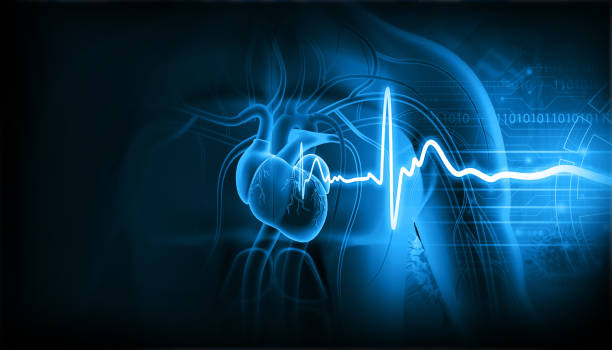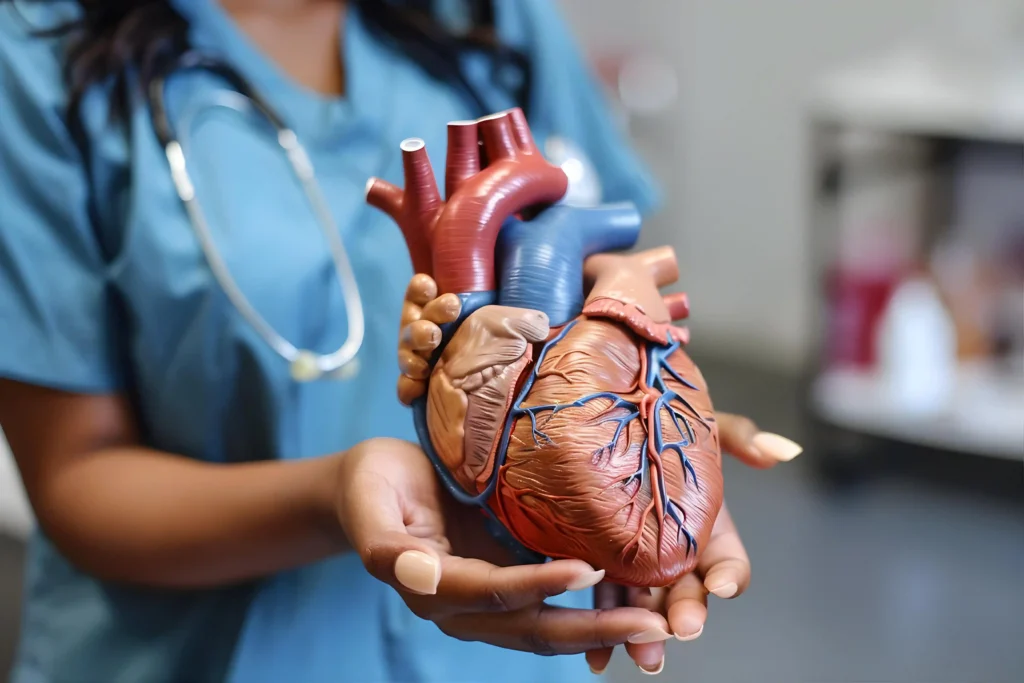Ten benefits of choosing Cardiology Jupiter for cardiovascular well-being
Ten benefits of choosing Cardiology Jupiter for cardiovascular well-being
Blog Article
Comprehending the Importance of Cardiology in Modern Medical Care Providers
Cardiology plays a vital role in modern-day medical care, especially as cardiovascular disease continues to be the leading root cause of mortality worldwide. Developments in diagnostics and treatment have changed patient care, enabling earlier treatments and improved results. In addition, the shift in the direction of preventive cardiology empowers individuals to handle their health proactively. As modern technology remains to advance, the combination of innovative remedies might better redefine cardiology's influence on public health, prompting a better evaluation of emerging trends and their effects.
The Frequency of Heart Problem and Its Effect on Public Health And Wellness
Heart disease stays the leading reason of death internationally, its effect prolongs far past individual people to affect public health and wellness systems and economic climates. The high occurrence of heart illness positions a substantial strain on medical care sources, demanding raised funding for avoidance, treatment, and recovery programs. Public wellness initiatives need to deal with threat factors such as weight problems, smoking cigarettes, and sedentary way of lives, which add significantly to the climbing incidence of heart conditions.Moreover, the economic problem connected with heart problem is enormous, including not just straight medical costs however additionally indirect expenditures related to lost efficiency and early death. Communities face difficulties in handling these prices, often resulting in variations in medical care accessibility and end results. As the populace ages and lifestyle-related risks continue to escalate, the urgency for effective cardiology treatments ends up being extremely important. Resolving heart disease is not only a matter of individual wellness yet additionally an essential public wellness top priority.
Breakthroughs in Heart Diagnostics and Imaging Techniques
Current developments in cardiac diagnostics and imaging techniques have actually reinvented the field of cardiology, improving the ability to spot and monitor heart conditions. Methods such as cardiac MRI, CT angiography, and echocardiography have come to be progressively sophisticated, giving thorough pictures of cardiac frameworks and features. These modalities enable the very early identification of problems like coronary artery illness, cardiac arrest, and valvular disorders.Moreover, advancements in non-invasive diagnostics, such as wearable modern technology and remote surveillance tools, have encouraged individuals and doctor. These tools promote real-time tracking of heart rhythms and other vital signs, resulting in timely interventions. Furthermore, expert system is being incorporated into imaging evaluation, improving accuracy and efficiency in diagnosis.
Technologies in Treatment Choices for Heart Conditions
Recent improvements in cardiology have actually brought about substantial advancements in therapy alternatives for heart disease. These consist of advanced surgical methods that enhance procedural outcomes and arising drugs that provide brand-new avenues for therapy. As the field evolves, these technologies play an important function in enhancing person treatment and end results.
Advanced Surgical Techniques
Developments in surgical techniques have transformed the landscape of cardiology, offering new expect clients with heart conditions. Minimally invasive treatments, such as catheter-based interventions, have substantially decreased recovery times and healthcare facility remains. Strategies like robotic-assisted surgical treatment improve precision, enabling doctors to navigate intricate anatomical frameworks with greater precision. In addition, advancements in imaging innovation help with real-time visualization throughout procedures, improving outcomes. Transcatheter aortic shutoff replacement (TAVR) exemplifies a breakthrough in dealing with aortic constriction, making it possible for valve replacement without open-heart surgical treatment. In addition, hybrid strategies that combine catheter-based and medical methods provide customized remedies for various heart concerns. These advanced medical methods not only enhance client safety and security but additionally broaden therapy choices, underscoring the essential function of development in modern-day cardiology methods.
Emerging Treatments and drugs
As the landscape of cardiology remains to progress, arising therapies and medicines play a crucial role in boosting treatment options for heart problems. Advancements such as novel anticoagulants and progressed lipid-lowering representatives have transformed the monitoring of cardio conditions, greatly lowering client morbidity and death. Furthermore, the growth of gene treatments and regenerative medication provides encouraging avenues for dealing with problems formerly considered irreparable. Scientific tests are consistently revealing the efficacy of these treatments, pressing the limits of standard therapies. Furthermore, the integration of digital health and wellness innovations assists in customized medication, permitting tailored therapy strategies based upon hereditary and way of life aspects. Jointly, these innovations emphasize the dynamic nature of cardiology, boosting individual outcomes and redefining standards of treatment in modern-day health care.
The Duty of Preventive Cardiology in Individual Care
Precautionary cardiology plays a crucial function in client treatment by concentrating on the recognition of risk factors that add to cardiovascular disease. With way of living adjustment approaches and early detection methods, medical care service providers can properly reduce the incidence of cardio occasions - Dr Garcia. This positive technique not just improves patient outcomes but additionally advertises long-lasting health and wellness
Threat Factor Recognition
While cardio illness continue to be a leading cause of morbidity and mortality worldwide, efficient danger factor recognition acts as a cornerstone of preventive cardiology. Recognizing threat aspects such as hypertension, diabetes mellitus, hyperlipidemia, and family members history is vital for early treatment. Health care specialists use various evaluating methods to review these aspects, enabling for customized safety nets. Furthermore, understanding a person's lifestyle selections, such as smoking cigarettes and physical inactivity, better notifies threat evaluations. This detailed assessment makes it possible for clinicians to develop tailored care plans intended at mitigating risks. By prioritizing threat factor identification, medical care systems can boost individual results and reduce the total problem of cardiovascular illness, ultimately adding to boosted public health strategies and resource allowance.
Way Of Living Modification Approaches
A wide variety of researches highlights the vital function of way of living alteration techniques in minimizing cardio disease risk. These techniques encompass dietary modifications, raised exercise, smoking cessation, and weight management. By embracing a heart-healthy diet plan rich in fruits, veggies, entire grains, and lean proteins, individuals can reduce cholesterol levels and blood pressure. Routine physical activity enhances the heart and enhances overall cardiovascular health and wellness. Furthermore, quitting cigarette smoking substantially lowers the threat of heart problem and boosts recuperation site web prices for those with current conditions. Weight management even more adds to cardiovascular health by minimizing various other danger elements such as diabetic issues and hypertension. Carrying out these way of life changes not just advertises private well-being yet additionally functions as a cornerstone of preventative cardiology in individual care.
Early Discovery Methods
Lifestyle alterations substantially add to decreasing heart disease dangers, but they are most reliable when matched with early discovery methods. Preventive cardiology highlights the importance of recognizing prospective heart issues prior to they escalate into severe problems. Strategies such as high blood pressure surveillance, cholesterol screening, and advanced imaging innovations like echocardiograms play crucial duties in assessing cardiovascular health and wellness. Biomarkers and genetic screening also boost the precision of very early discovery, enabling for customized preventative methods. Regular cardiac threat assessments encourage doctor to intervene proactively, possibly stopping heart attacks and strokes (Cardiology). By integrating these early discovery approaches into routine care, individuals can take advantage of timely way of life treatments and targeted therapies, ultimately enhancing results and boosting quality of life
Integrating Innovation Into Cardiology Practices
As innovations in technology remain to reshape numerous areas, the assimilation of innovative tools and systems into cardiology methods has ended up being crucial for enhancing client treatment and end results. Telemedicine systems allow cardiologists to check patients remotely, improving access to care while lowering the problem on healthcare centers. Wearable devices, such as smartwatches, enable continuous heart rate monitoring, notifying both individuals and medical professionals to prospective problems in real-time. Furthermore, expert system (AI) is being utilized to examine vast quantities of heart information, helping in early diagnosis and customized therapy strategies. Advanced imaging strategies, consisting of 3D echocardiography, improve visualization of heart structures, resulting in much more precise treatments. Digital health and wellness records (EHRs) streamline person details administration, guaranteeing that cardiologists have immediate accessibility to vital information. With each other, these technological innovations are changing cardiology, advertising positive monitoring and boosted wellness results for individuals with cardiovascular problems.
The Significance of Person Education and Involvement
Client education and learning and engagement play an essential role in the management of cardio wellness. By gearing up people with knowledge regarding their problems, treatment choices, and way of living adjustments, medical care service providers encourage people to take an active function in their treatment. This proactive method can cause enhanced adherence to suggested medications, dietary modifications, and workout routines, ultimately decreasing the danger of complications.Engagement additionally promotes a solid patient-provider partnership, urging open communication and count on. When clients really feel notified and entailed, they are more probable to voice worries and ask inquiries, which can bring about better clinical outcomes. Additionally, academic resources, such as workshops or digital platforms, can boost understanding and advertise self-management approaches. Overall, prioritizing patient education and engagement is important for enhancing cardio health and wellness, enhancing high quality of life, and minimizing health care expenses connected with heart diseases.
Future Trends in Cardiology and Their Possible Influence

Frequently Asked Inquiries
What Way Of Life Modifications Can Minimize Heart Illness Risk?
The current inquiry addresses way of life adjustments that can substantially minimize heart disease threat. Cardiologist near me. Taking on a well balanced diet plan, engaging in normal exercise, maintaining a healthy and balanced weight, click over here now managing stress and anxiety, and preventing tobacco can especially boost cardio health and wellness
How Can I Identify Early Indicators of Heart Issues?
Identifying early indicators of heart issues entails tracking signs and symptoms such as breast discomfort, navigate to this site shortness of breath, exhaustion, and irregular heart beat. Timely understanding of these indicators can trigger required clinical evaluation and treatment for better results.
What Are the Distinctions Between Cardiologists and Heart Surgeons?
The distinctions between cardiologists and cardiac doctors depend on their roles; cardiologists largely take care of and diagnose heart conditions via non-invasive methods, while cardiac doctors do procedures to remedy architectural heart issues. Each plays an important, distinctive role.

How Often Should I Obtain My Heart Health And Wellness Checked?
The frequency of heart checkup differs based upon individual threat variables. Normally, adults must go through evaluations each to two years, while those with status quo may call for more frequent evaluations as recommended by medical care experts.
What Role Does Genes Play in Cardiovascular Disease Risk?
Genes greatly affects cardiovascular disease threat, with familial patterns showing inherited problems. Particular genetics can predispose people to hypertension, cholesterol concerns, and other cardiovascular troubles, highlighting the significance of hereditary screening in examining heart health. Heart illness continues to be the leading cause of fatality worldwide, its influence extends far past individual clients to influence public health and wellness systems and economic situations. Public health efforts need to resolve danger aspects such as obesity, cigarette smoking, and sedentary way of livings, which contribute significantly to the climbing incidence of heart conditions.Moreover, the financial concern connected with heart condition is immense, including not just straight medical prices yet also indirect costs associated to shed performance and premature mortality. Precautionary cardiology plays a necessary duty in patient care by focusing on the identification of danger variables that add to heart condition. Artificial intelligence (AI) and device discovering are improving diagnostics and individual surveillance, making it possible for early detection of heart diseases. The differences between cardiologists and cardiac cosmetic surgeons lie in their functions; cardiologists mainly handle and identify heart conditions with non-invasive techniques, while cardiac cosmetic surgeons carry out surgical procedures to correct architectural heart concerns.
Report this page